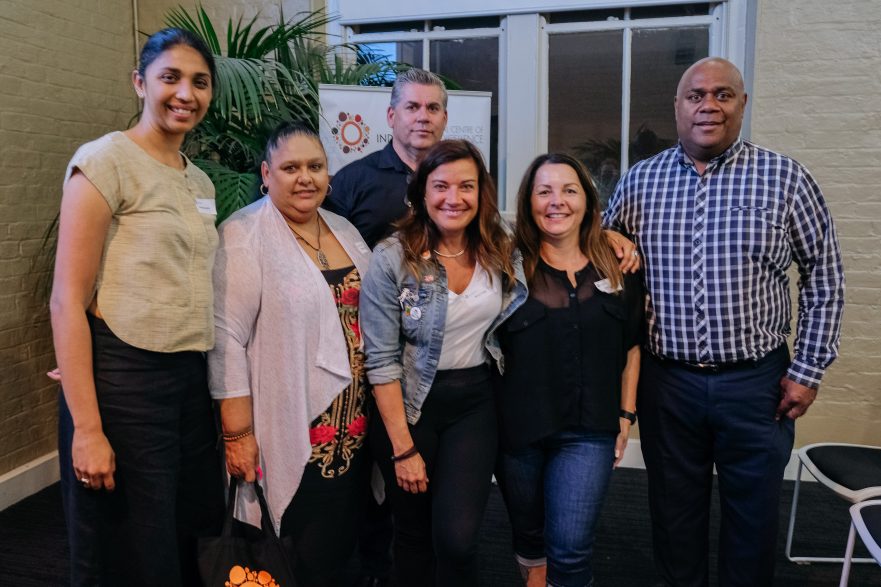Photo: Panellists Marie Barbaric, Gordon Cole, Alison Page and Shane Phillips with Moderator and NCIE Chief Operating Officer, Indu Balachandran and NCIE Acting CEO, Jodie Stevens.
Developing strong Indigenous businesses is at the heart of financial success, economic independence, and cultural strength for Aboriginal and Torres Strait Islander people.
Social Enterprises are businesses that operate for both profit and purpose, using the power of the marketplace to advance a cause or a community.
NCIE is always looking for ways to support Indigenous Social Enterprises for community members who are interested in business development as a means of self-determination.
On the last day of Indigenous Business Month we got four social entrepreneurs together to tell their stories about their social enterprises.
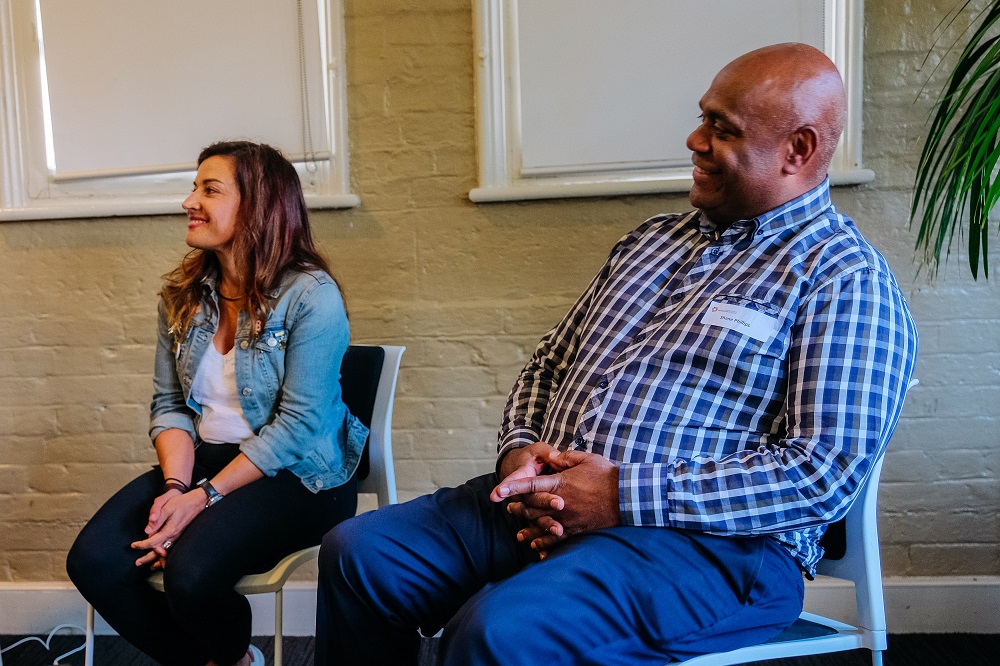
Alison Page, NCIE Chair and Shane Phillips, Tribal Warrior CEO at the Social Enterprise Panel.
NCIE Chairperson, Alison Page described the quadruple bottom line that applies to all Indigenous businesses: social, economic, environmental, and cultural outcomes.
“Part of our role, especially in NSW, is cultural advocacy,” she said.
“I always say I grew up as a concrete Koori with Westfield dreaming. I didn’t have that grandmother who knew everything.
“My design and my work helped me learn about cultural identity, and I continue to work on using my businesses and my roles everywhere to promote traditional knowledge.”
Shane Phillips, CEO of Tribal Warrior described Tribal’s far reaching day to day work.
“The effects of economic empowerment flow on. At Tribal Warrior, we mentor, we see families switching on, we see youngfullas turning round.
“This school (Redfern Public School, the site of NCIE) was brutal to me as a kid.
“We learned nothing about our people.
“But when you do start learning, it’s like wiping the mud off a windscreen. You can see where you are going and you can learn. We can learn the history, we can rebuild the language.
“So if Tribal Warrior’s commercial activity supports that and we can put resources into that – that’s what it’s all about. We want to make this the normal for the next generations.”
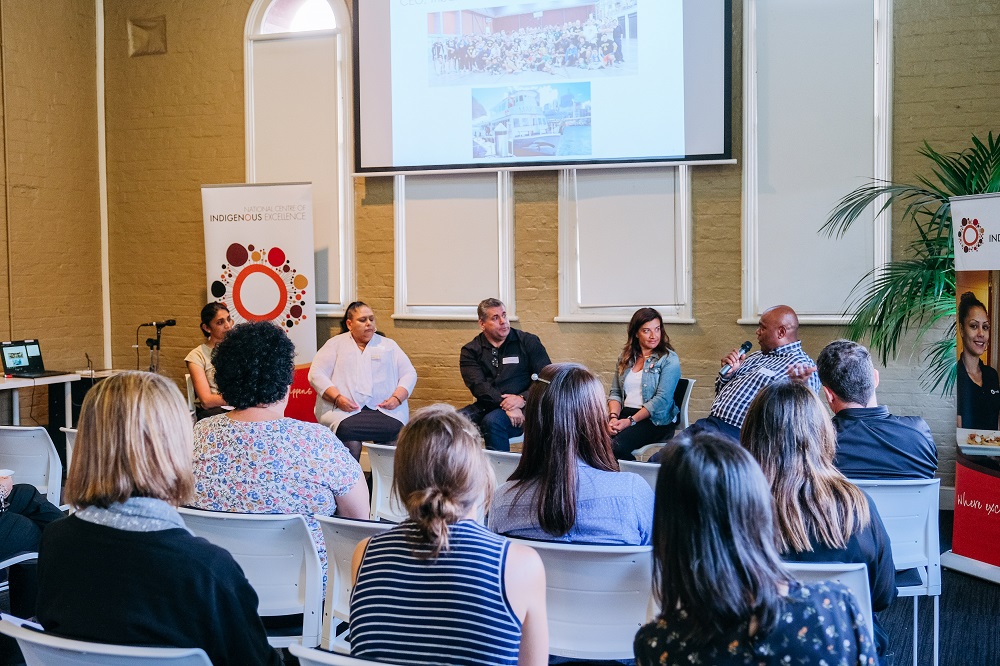
Shane Phillips speaking on the Panel.
Gordon Cole was inspired to start the Noongar Chamber of Commerce and Industry after talking to other Indigenous entrepreneurs in Canada. “Aboriginal business is the sleeping giant in the Australian business sector, but the reality is most of us are two pay cheques away from poverty.
“The key is about how we maintain our culture and then maintain that through business and social enterprise.
“When you make money for yourself, that’s the business. When you make money for social enterprise, that’s for the mob.
“You’re here as a social enterprise to make a difference. That impact measurement is necessary, it’s worth it.”
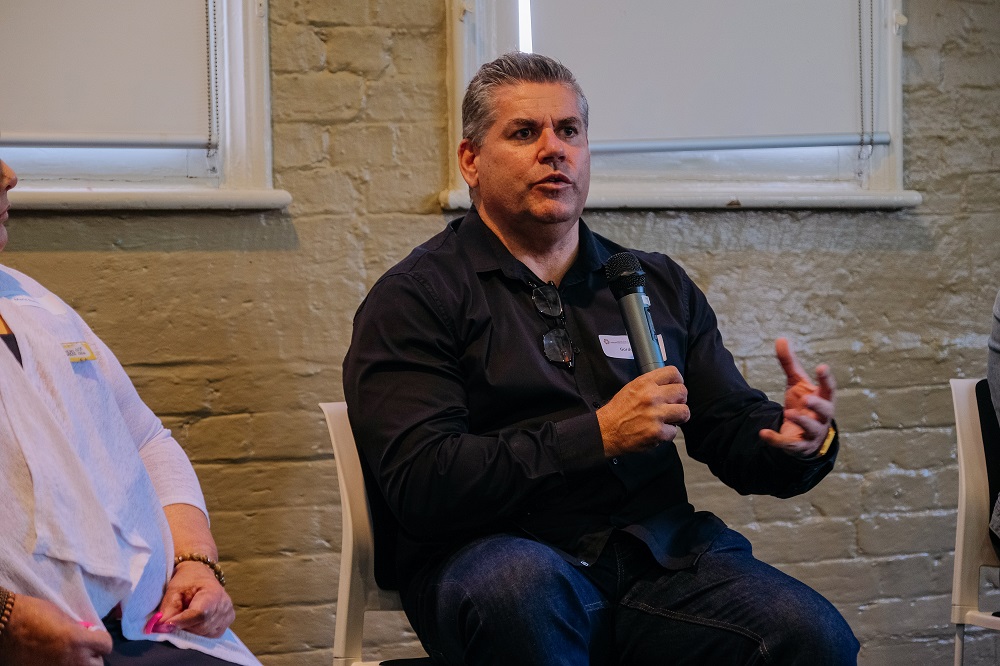
Gordon Cole from the Noongar Chamber of Commerce and Industry spoke about the opportunity that exists within Indigenous Social Enterprises.
Marie Barbaric, Managing Director of Koori Kulcha, came from generations of stolen generations.
“We had no capital and no cultural capital. Koori Kulcha came from my need to make a change in my family and my community and to give them that safe place. We are answerable at every level to community.
“We do this because we are passionate about next generations’ futures – to give them what we didn’t have.
“I will always ask permission from Elders about something I want to do with the business. We are surviving but not making money. When there is money I’m looking for ways to give back to community.
“But then you have to remember, this is a business and you have to wear those two hats.”
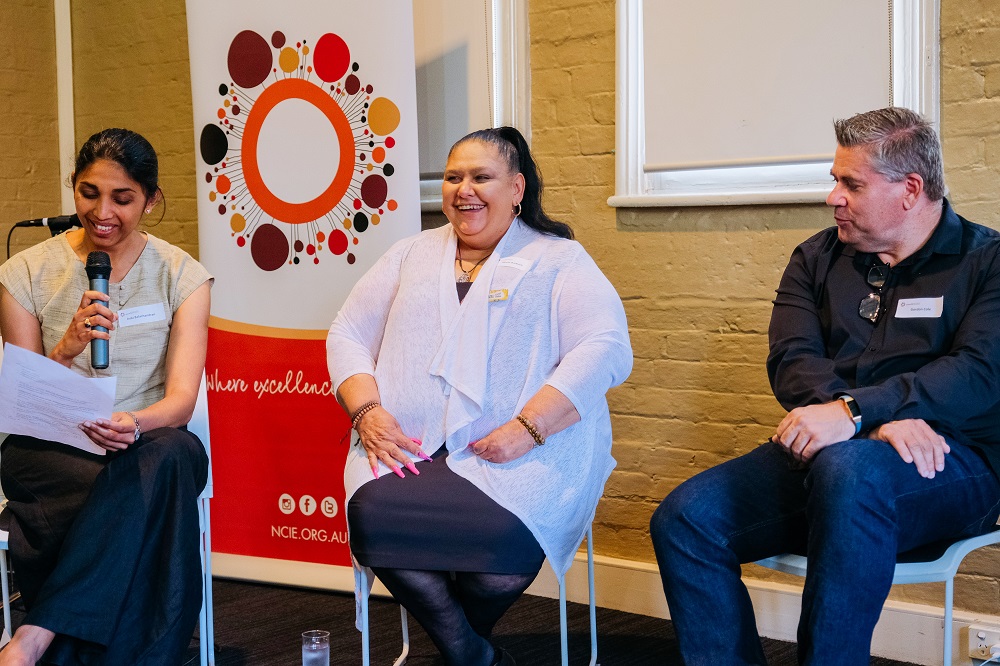
Marie Barbaric from Koori Kulcha talked about creating a safe space for community through her social enterprise.
Keeping on keeping on- measuring the change a social enterprise is making
“The first five years of business is a tangible, exciting thing”, says Alison Page.
“Then you have to look at internal excellence, and systems, and investors and others need to see the measurement of your social impact. It all becomes very real.
“You need to balance making money with the difference you are making, keeping afloat on both fronts.”
At NCIE, as a social enterprise, we focus on measuring what matters to the people at the centre of the service or a program and what is progress for them.
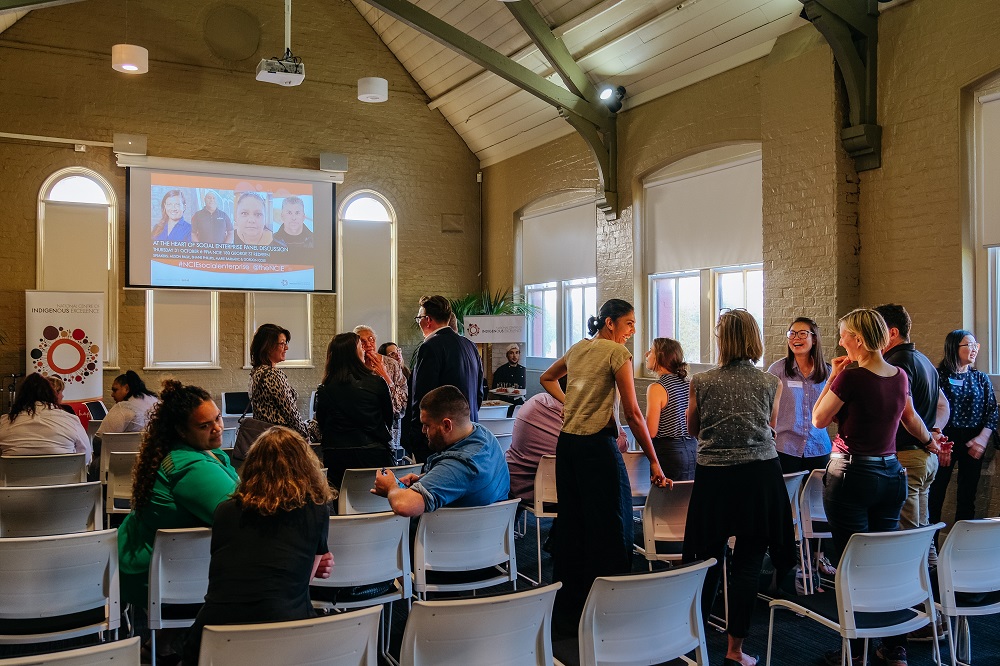
The panel was a great way to close off Indigenous Business Month, thanks to everyone who attended!
Tribal Warrior estimates their work has saved the Government $7.9 million in incarceration expenses.
While it’s good to save Government money so they can better spend funds for our mobs, it’s important the narrative is led by mob about how to articulate the progress.
As Shane Phillips summarised, “Our businesses can’t live on surveys and stories to measure social impact, we need hard qualitative data in the end.
“But don’t measure us on deficit on our crime rate, measure us on success, on our deadly rate – measure us on our deadliness.”
Thanks to everyone who attended on the night, and thanks to City of Sydney for supporting this event.



